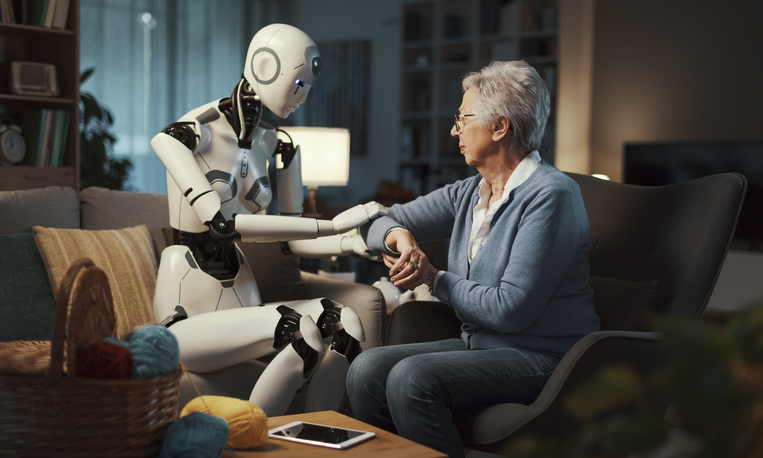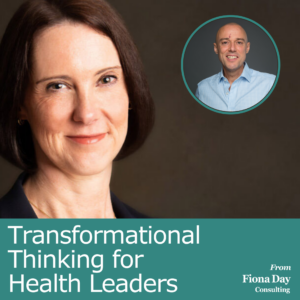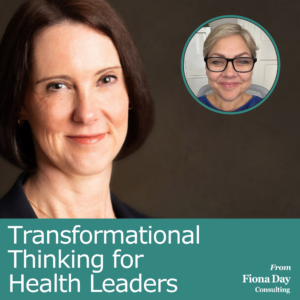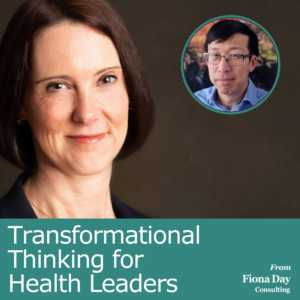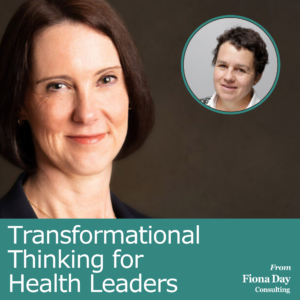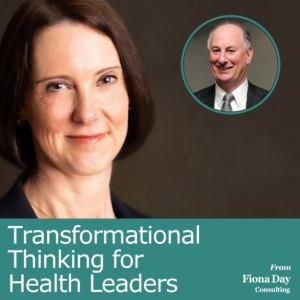I’ve been thinking about the opportunities and the challenges of technology recently and what this means for health leaders and health careers: readers of my blog may remember my 2020 post ‘The robot will see you now’.
Design technology around the users needs
I wrote my dissertation for my psychology intercalated degree in 1993 on gender differences in video-game playing by young adolescents, and the learning in my module on ‘human-computer interaction’ has actually been surprisingly useful to me over the years – especially when you consider that we were just starting to use floppy discs at that time and hadn’t even started using email. A key takeaway though was that technology needs to be designed around the users needs and not the other way around.
Fifteen years ago, I was leading on the use of assistive technology in my joint Public Health Consultant role between the NHS and adult social care. Various telehealth bids had been successfully submitted by the system before my appointment, and boxes of remote monitoring kits were sitting in cupboards – all because the human elements hadn’t been designed in.
Providing coaching supervision for bots?!
Last week, I co-delivered a CPD session for the coaching professional body, EMCC Global. The topic was the learning from the QUESCO research project I had been involved in as a coach, I was struck by the volume of comments from the several hundred participants about their fears around the use of AI generally (and in coaching specifically). I must say I had never thought about supervising or being supervised by a bot!
When is technology helpful and when is it not helpful?
I attended Health Expo in 2011, the focus was all about ‘channel shift’: if a bot could do it then a human shouldn’t. There is currently a renewed political focus on the potential transformational opportunities for digitisation of healthcare services.
There are times when interacting with a bot is acceptable and sometimes even preferable to a human, such as when I cut my finger open recently and the NHS 111 app told me which minor injury service had the shortest waiting time. There are some things that AI can help us with such as health coaching and wearable technology, or complex surgery requiring robotic support.
I hate to think that top surgeons will one day be operating remotely from ‘laptops in their bedrooms’, or that as a vulnerable person with an acute or chronic illness I would be treated with the utmost efficiency thanks to technology, while losing the ‘human’ side of healthcare in the trade-off.
I don’t think I will ever want to supervise or be supervised by a bot; and for me the working alliance in coaching (one of the ‘effective ingredients’ in what makes coaching work) is about collaboration and partnership working underpinned by our shared humanity.
Dr Fiona Day is the world’s only Leadership Coach with advanced coaching psychology, medical and public health qualifications (MBChB, FFPH, BPS Chartered Psychologist in Coaching Psychology, EMCC Master Practitioner Coach & Mentor) and is in a unique position to help you and your teams to flourish. Fiona specialises in coaching medical and public health leaders, is a coach Supervisor, and an EQA Foundation Award Holder. Get 3 hours of FREE CPD with Fiona’s Health Career Success Programme here. Book a free confidential 30 minute Consultation with Fiona here.

